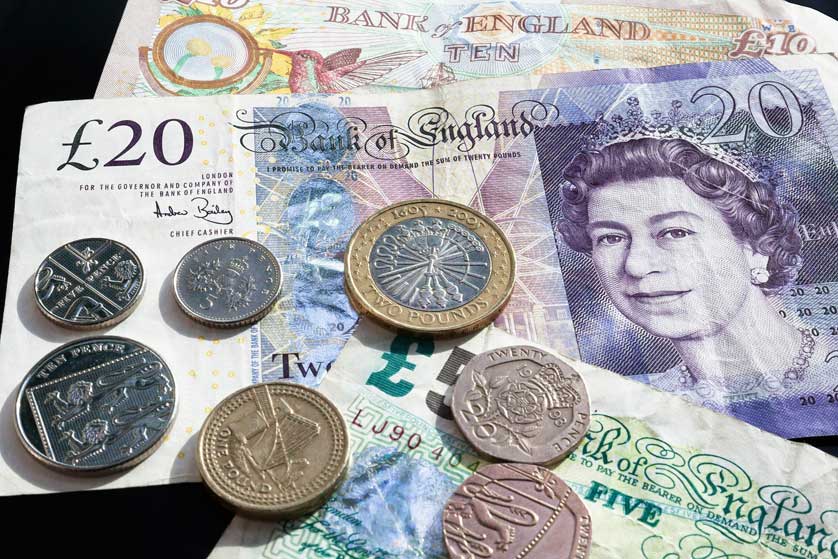Ten Tips To Save On Costs For Currency Conversion Rates And Fees
The cost of currency conversion is becoming increasingly essential for financial transactions. This is the case whether you're conducting international business, traveling overseas, or managing your investments in foreign currencies. The fees you pay for conversion depend on your service provider as well as the method of exchange and the currencies you are using. When you know how to avoid these charges, you will be able to reduce your expenses and make more informed choices. Here are the top 10 specific tips for currency charges for conversion. They will be beneficial to travelers, investors, and even businesses.
1. Learn about the different kinds of currency conversion fees
Currency conversion fees come in different types. They may be transaction fees, service fees, or exchange rate markups. Fees for transactions are fixed for every exchange. Service charges could comprise a percentage of the converted amount. Exchange rate marksups are when a service provider provides a lower rate than the current market rate. Becoming familiar with these types of fees will aid you in determining the most cost-effective solutions for your needs.
2. Compare rates from multiple providers
It is crucial to compare rates prior to changing currencies. Banks as well as kiosks that exchange currency, and online platforms offer different fees and rates. Currency converters are a great tool to estimate total costs which include fees as well as actual exchange rates. This comparison can aid you in determining the best price and could save you a significant amount, especially when you exchange larger amounts.
3. Search for currency exchange services that do not charge charges for fees
Certain banks and financial institutions offer accounts that permit free currency exchange or reduced costs for certain transactions. Fintech and online banks for instance, frequently offer currency conversions for free for account holders. You might want to consider opening an account with one of these companies when you regularly deal in foreign currencies. This could help you avoid any unnecessary costs.
4. Be aware of the charges related to Dynamic Currency Conversion.
When you make a purchase using your debit or credit cards in other countries, a service named Dynamic currency conversion might give you the option to pay using your currency at home. While this might seem convenient, you'll often be charged more for conversion and receive lower exchange rates. Make sure to pay in local currency whenever you can, to avoid extra costs and obtain the best rate.
5. You can use credit cards without having to pay foreign transaction fees
You will save money when you use credit cards that don't charge a foreign transaction fee when you travel. This benefit is offered by a variety of travel-focused cards which permit you to purchase items abroad without incurring any additional fees. You should choose a card that offers favorable exchange rates, and one that is compatible with your spending habits. This will help you to reduce costs when traveling.
6. Think about using ATMs for Currency Withdrawal
If you compare them to the kiosks that exchange currency, using ATMs to withdraw cash in local currency often will result in higher exchange rates. Be aware that both your ATM operator and your bank could charge you fees. Choose ATMs that are associated with your bank in order to reduce fees. Always make withdrawals in the local currency.
7. Plan for Currency Conversion in Advance
Avoid last-minute exchanges for currency at airports or tourist hotspots. The fees charged are more expensive. Instead, plan your currency conversion ahead of time to make the most of better rates and lower fees. Find the most efficient alternatives for local exchange and then exchange small amounts prior to your trip, to be able to cover the costs of your trip. Consider exchanging more money once you get there.
8. Watch for changes in exchange rates
Monitoring changes in exchange rates will help you determine the best times to change your currency. The fluctuation of exchange rates can affect fees and expenses. If you keep track of these trends, you can prepare your conversions. Use historical data and financial news to inform your choices, allowing you to profit from favorable conditions.
9. Add hidden charges to transactions
Beware of hidden costs. There are a variety of fees that could be service charges, foreign currency account maintenance charges, or even unfavorable conversion rates. Be sure to read the fine print and never hesitate to ask questions so you are aware of the cost of the conversion of currency. This diligence can aid you in avoiding unexpected costs and assist you in making better financial decisions.
10. Contact a professional in finance for large transactions
If you are planning to carry out large-scale transactions or handle complex transactions involving currency, it may be helpful to consult with experts in finance. Currency experts can offer insights on how you can reduce charges for conversion and maximize your transactions. It is crucial for international businesses or investors to manage their exposure to currency.
The following tips will assist you with the challenges and dangers of exchange rates. This is true whether you're traveling internationally, undertaking international business or managing your investment in foreign currencies. Knowing the intricacies of conversion fees can help you make more informed financial decisions that are aligned with the goals of your business or personal life. You can reduce costs and enhance your financial strategies by understanding these subtleties. Follow the best continue reading this about USD to AED for more advice including convert euro to usd, canadian dollar to usd, rmb to usd, usd to cop, british pound to dollar, dollar to php, baht to us dollar, cad to usd, convert pounds to dollars, usd to japanese yen and more.

Top 10 Tips On Destination Currency And Currency Exchange Rates
Understanding the currencies of a destination is crucial for those planning to travel overseas, doing international business, managing investments abroad or conducting international transactions. The currency of destination is the currency of the country you are visiting, or with whom you have an engagement. It will affect your financial decision. The fluctuation of exchange rates and conversion fees along with the overall economic climate will affect how much you travel or how profitable business deals and investments are. By gaining a better knowledge of the currency used in your destination, you will be able to make better financial decisions. The top 10 tips on how to handle destination currency are listed below.
1. Study the currency of the country Before Traveling
Spend the time to find out about the currency of your country. Learn to evaluate the worth of your local currency to that of your own, and get familiar with its denominations. This will allow you to control your spending more effectively and avoid overpaying for goods and services. Websites, such as XE.com, provide current and historical information about exchange rates. You can use this to determine how much your currency will be worth abroad.
2. Review exchange rates prior your travel
Exchange rates change dramatically over time, and monitoring these changes can assist you in determining the ideal moment to exchange your currency. Currency tracking tools and apps can be used to set up alerts for when rates are in a favorable position. If you see a decrease in trend, make sure to exchange your cash earlier in order to maximize the buying potential of your trip.
3. Currency cost of conversion is important to take into consideration
– Currency conversion fees are different between banks, exchange services, and ATMs. Take note of expenses associated with converting your currency from home to the currency of your destination since these charges could eat up your budget. Compare rates of exchange between different companies, and look for online platforms with lower conversion fees and competitive rates.
4. Use local currency to make transactions
Pay in local currency whenever you make purchases abroad. Never make purchases using your currency of home. If you pay in your local currency it will often result in the use of a dynamic currency converter (DCC), with higher costs and lower exchange rates. If you pay with local currency, then you'll enjoy lower exchange rates and save cash.
5. Plan cash needs for the future
While debit and credit cards are accepted in several countries, it's important to have some cash in case of smaller purchases and tips, as well as for locations that might not take credit cards. Consider withdrawing more money at once to lower transaction fees. Research the fees and limits of ATMs prior to making use of an ATM in another country. A local currency that is readily available can enhance your travel experience and prevent problems.
6. Learn about Local Payment Preferences
Different countries have distinct preference for payment. Certain areas are dominated by cash, while others heavily rely on credit cards or digital payments. To learn about the most popular payment methods, research the payment practices of your area. This knowledge can aid you in planning your payment strategies and ensure you are equipped to process transactions with ease.
7. Risks of currency for businesses
If you intend to conduct business in an unfamiliar country, you should consider the risk of currency fluctuations that can result from fluctuations in exchange rates. A sudden change in the value of the currency that you are using can affect profit margins and the overall financial performance. Utilize hedging strategies like forward contracts to secure future exchange rates and minimize potential losses due to fluctuations in currency.
8. Keep track of Your Spending
Track your spending during vacation in the local currency. Use budgeting apps or keep a record of your expenses to determine the amount you spend in local currency. This will enable you to keep your expenses under control and also ensure that you have enough funds.
9. Financial Regulations: You Should Be aware of your rights
Different countries have different laws and regulations pertaining to the exchange of currency, cash transactions as well as other reporting requirements. Be aware of these rules to avoid any legal problems when traveling or conducting business. It is possible that certain countries have limitations on the amount of cash you can carry in and out of their borders, or ask that you declare purchases of a significant amount. You can navigate these regulations more easily if you are well-informed.
10. Consult Currency Experts before Investing
Ask for advice from currency experts or advisors with experience in international investing If you're keeping track of your investments on foreign markets. They can help you understand the effect of fluctuations in currency on your portfolio of investments, and create strategies to control risk associated with currency. They can assist you in navigating the complexity of currency of your destination to improve your financial performance.
Following these detailed tips for managing destination currencies will assist you in navigating the many complexities of traveling conducting business, as well as monitoring your investments. Knowing the benefits and implications of destination currency will help you make better financial decisions in alignment with your goals. This will enhance your overall experience and your financial plan. Read the best forint examples for site recommendations including usd to inr, usd to jpy, pound to dollar, usd to jpy, us dollar to japanese yen, us dollar to japanese yen, usd to mxn, gpb to usd, 1 usd in rupees, usd to thb and more.

